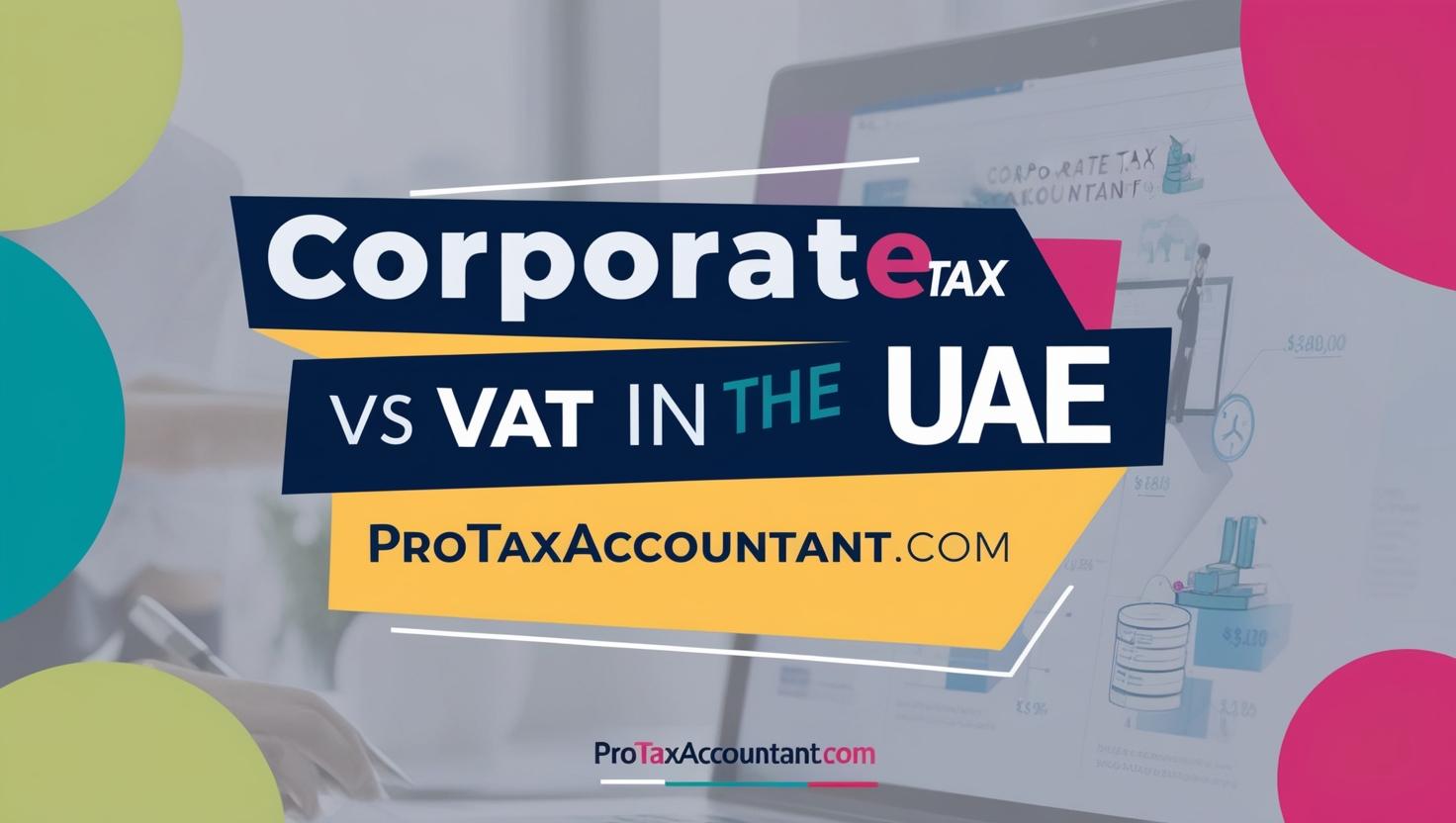| Term | Description | Example |
| Resident Person (Company) | Any company registered and operating within the UAE (LLC, PJSC) | A clothing store established as an LLC in Dubai |
| Resident Person (Individual) | An individual running a business in the UAE | A freelance consultant offering services in the UAE |
| Foreign Resident Person | A company registered outside the UAE but effectively managed and controlled in the UAE | A company registered in BVI but whose board meets and makes strategic decisions in Dubai |
| Effectively Managed and Controlled | The company’s key decisions about direction and strategy are made in the UAE | Board meetings and strategic planning happen in the UAE |
| Taxable Income | Net profit of the business after accounting for expenses | Revenue from sales minus business expenses |
UAE Corporate Tax: A Breakdown for Business Owners
The UAE recently introduced Corporate Tax, which means businesses operating here will need to pay a percentage of their profits to the government. This might seem complex, but let’s break it down into easy steps using the original terms:
Who are Resident Persons for UAE Corporate Tax?
- Resident Companies (Resident Person): This applies to any company you set up in the UAE, following the legal structure. These structures include:
- Limited Liability Company (LLC): A popular business structure known for its ease of setup and flexibility. Think of it like a family business where partners (called members) contribute money and share profits/losses.
- Private Joint Stock Company (PJSC): This structure allows selling shares of ownership (called stocks) to a limited number of investors. Imagine a company where you can raise funds by selling portions of the business to interested parties.
- Public Joint Stock Company (PJSC): Similar to a PJSC, but here, you can sell shares to the public on a stock exchange. This is suitable for larger businesses needing significant capital.
Basically, any company registered and operating within the UAE falls under this category.
- Resident Individuals (Resident Person): If you’re an individual running a business in the UAE, you’re also considered a resident person for Corporate Tax. This applies to businesses you might own like a restaurant, a shop, or a consultancy.
The key point is, if you’re conducting business activities and making a profit within the UAE, you’ll likely be a resident person.
- Foreign Companies as Resident Persons: A company registered outside the UAE can also be considered a resident for tax purposes if it’s “effectively managed and controlled” in the UAE. This means the important decisions about the company’s direction and strategy are made here.
For example, imagine a company registered in the British Virgin Islands (BVI) but whose board of directors always meets and makes strategic plans in Dubai.
In this case, even though it’s registered elsewhere, the UAE might consider it a resident for tax purposes since the real control happens here.
Determining Residency: Facts and Circumstances
The exact details of “effectively managed and controlled” are considered on a case-by-case basis.
Here are some factors that might be looked at:
- Location of Board Meetings: Where do the directors who make key decisions typically meet? Dubai, Abu Dhabi, or somewhere else?
- Management Presence: Do the top managers who run the company live and work in the UAE?
Remember, residency for tax purposes is important because it determines whether you need to pay Corporate Tax in the UAE.
Additional Points to Consider:
- Taxable Income: Corporate Tax is generally applied to your business’s net profit after accounting for expenses. There might be specific rules on what deductions are allowed, so consulting a tax advisor is recommended.
- Foreign Income: While the general rule is to pay tax on all your business income, there might be exceptions for profits earned from subsidiaries in other countries that already pay corporate tax there. This area can get complex, so seeking professional guidance is advisable.
Remember:
This is a simplified explanation to get you started. For a comprehensive understanding and specific advice on your business situation, get in touch with us.
They can help you navigate the legalities and ensure you’re compliant with the Corporate Tax regulations.



















